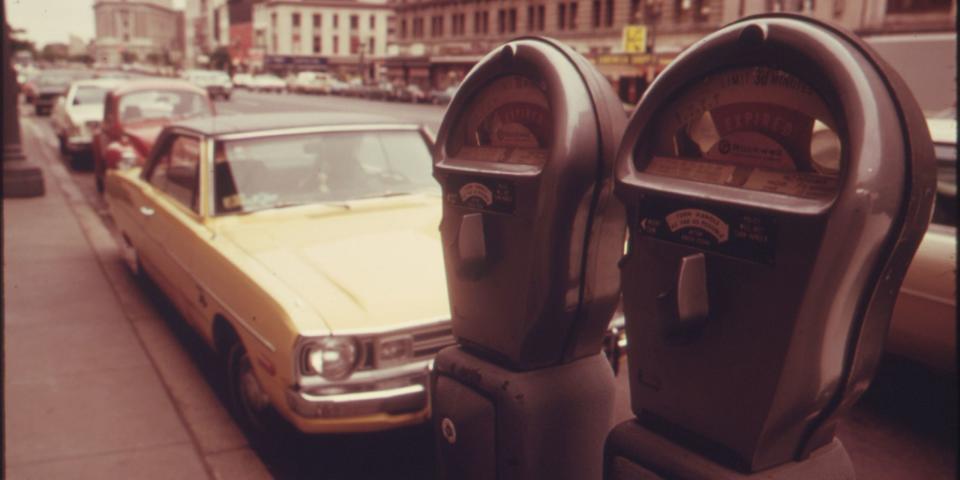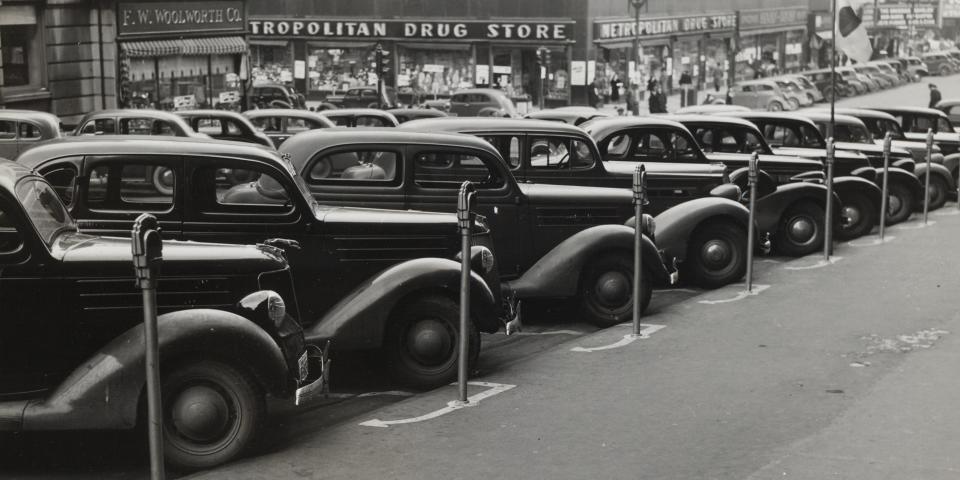Happy Birthday to the World's Most Hated Invention!

Carl C. Magee was a hell of a guy: reporter, lawyer, attempted assassin, he helped uncover one of the largest corruption scandals in American history, the Teapot Dome Scandal. Founding what would be come the Albuquerque Tribune, he zoomed into statewide politics and focused on corruption in the New Mexico court system; and after a judge knocked him down in the lobby of a Las Vegas hotel, Magee pulled out his gun and fired. He missed, but he killed a bystander nonetheless. Acquitted of manslaughter, he found his way to Oklahoma City, onto the board of the city's Chamber of Commerce. And if manslaughter wasn't a heinous enough crime, his invention of the parking must surely qualify Magee for one of history's greatest monsters.
Exaggeration? Sure, probably. But next time you're running to fight the meter from ticking into overtime, thereby turning your mimosa-laden Sunday morning brunch into a $75 ticket, you can now curse both Magee and the city of Oklahoma City in one sweeping breath.
It's simple, really: it's all the tragedy of the commons. Give the masses free parking and they'll take too much of it. By the 1930s, three decades after the first car appeared in America, the blasted things were so popular that cities were feeling the squeeze: there was no formal system for parking them, so the congestion grew alongside the chaos. Los Angeles tried to ban parking downtown during daylight hours, with as smooth results as you'd expect, which is to say not at all: public protests added to the chaos, and the whole ban was lifted and promptly forgotten in mere weeks.
Imagine Los Angeles without cars! We can only dare to dream.
Enter Magee's loftily-named Park-O-Meter. (Maybe we'd be more tolerant of the hated machines if we still referred to them as such.) He invented it for the benefit of Oklahoma City's downtown district, and showed off the device in May of 1935. Magee had thought of such a mechanical device since 1932-a boxy, mailbox-like prototype named "Black Maria"-but the patent wouldn't be granted to him until 1936. The nickel meters gave motorists anywhere from 15 minutes to an hour to park, depending on location. And on July 16, hardly two months after its debut, Oklahoma City officials installed the first parking meter, along with 174 of its brethren, across fourteen blocks of downtown Oklahoma City.
Immediately, people hated it. "Indignant opponents of the meters considered paying for parking un-American," said History.com, "as it forced drivers to pay what amounted to a tax on their cars, depriving them of their money without due process of law."

It made money. It made the cities tons of money, as they realized that they could monetize this thing they didn't even know they could monetize, and it made Magee tons of money, as he started supplying as many cities as he could with the Park-O-Meter company. Five cents an hour, and $25 a parking ticket! And thus, a motorist's scourge was born, filling the coffers of our fair bureaucracies, elevating the "meter maid" to that of a noble profession, and giving our soft, doughy thighs a workout as we run to feed said meters and avoid the gazes of said meter maids. A century later, a "robot lawyer" on a handheld device is helping people get right out of those parking tickets. Maybe it's the spirit of Magee himself.
Park-O-Meter No. 1 is on display in the Statehood Gallery of the Oklahoma Historical Center. Go on, check it out. Parking is free. There are no meters.
Image via Wikimedia Commons

 Yahoo Autos
Yahoo Autos 